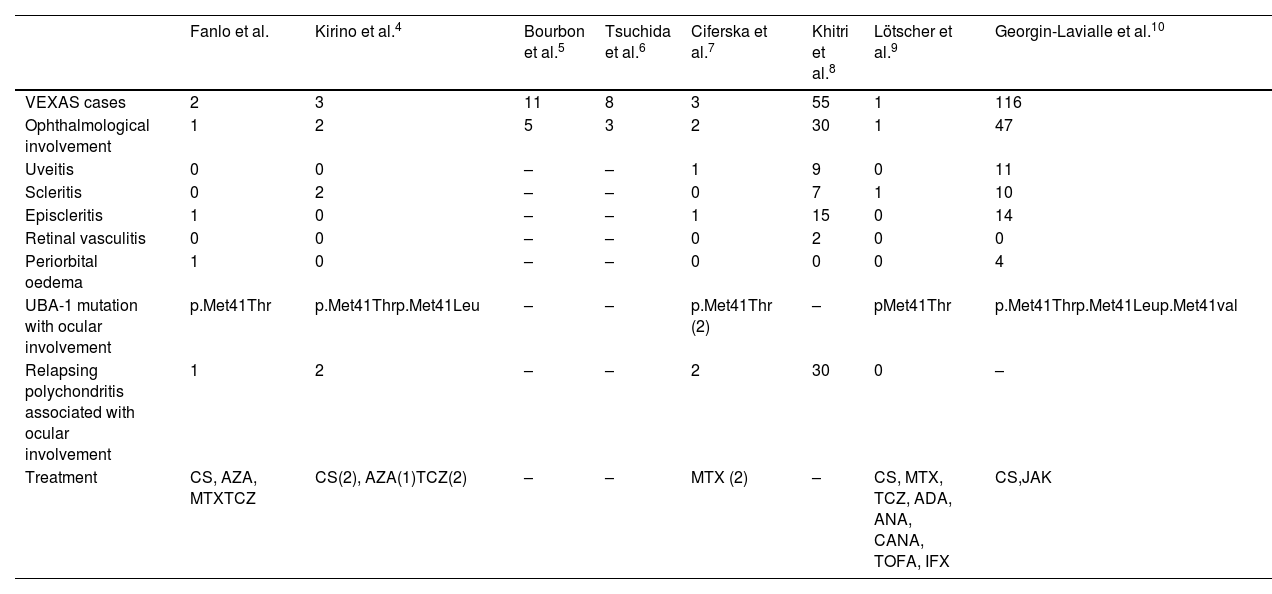VEXAS (vacuoles, E1 enzyme, X-linked, autoinflammatory, somatic) syndrome is a newly described autoinflammatory entity caused by a UBA-1 gene mutation. Among the most frequent symptoms it produces fever, cytopenias, polychondritis, pulmonary infiltrates and up to 40% ocular involvement such as periorbital edema, uveitis, episcleritis, scleritis and retinal vasculitis. Patients respond to high doses of corticosteroids, however, many end up being refractory to them and to the classic immunosuppressants. We described the case of a 77-year-old male patient with ocular involvement in the form of episcleritis and periorbital edema who was later diagnosed with VEXAS Syndrome. The patient, after failing treatment with immunosuppressants, is currently receiving treatment with oral steroids and tocilizumab. Ophthalmologist must be aware of the ophthalmological affectation of autoinflammatory diseases and especially of this new entity described as the VEXAS Syndrome.
El síndrome VEXAS (vacuolas, E1 enzyme, X-linked, autoinflammatory, somatic) es una nueva entidad autoinflamatoria descrita recientemente, producida por una mutación del gen UBA-1. Entre los síntomas más frecuentes produce fiebre, citopenias, policondritis, infiltrados pulmonares y hasta en un 40% afectación ocular en forma de edema periorbitario, uveítis, epiescleritis, escleritis y vasculitis retiniana. Los pacientes responden a altas dosis de corticoterapia, sin embargo, muchos terminan siendo refractarios a los mismos y a los inmunosupresores clásicos. Se describe el caso de un paciente varón de 77 años con afectación ocular en forma de epiescleritis y edema periorbitario que posteriormente fue diagnosticado de Síndrome VEXAS.El paciente tras fracasar al tratamiento con inmunosupresores en la actualidad está en tratamiento con esteroides orales y tocilizumab. Los especialistas en oftalmología deben estar al corriente de la afectación oftalmológica de las enfermedades autoinflamatorias y en especial de esta nueva entidad descrita como es el Síndrome VEXAS.
Artículo
Comprando el artículo el PDF del mismo podrá ser descargado
Precio 19,34 €
Comprar ahora








